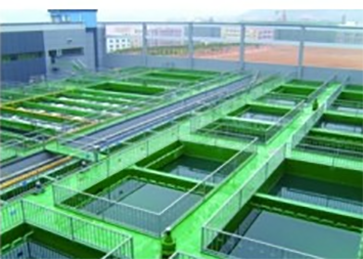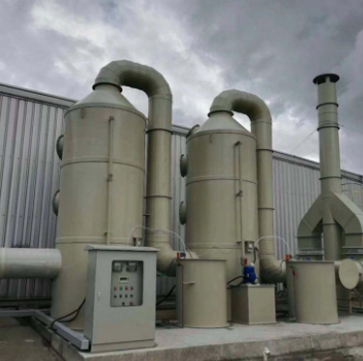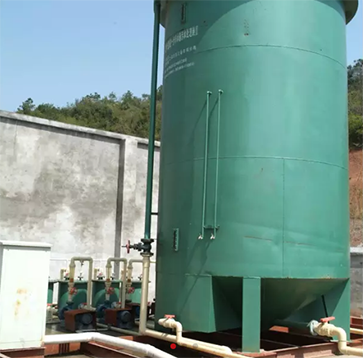
As a responsible and sustainable manufacturer of SLA batteries, KOGIANT has always insisted on prevention rather than cleaning up in terms of environmental protection and maintenance of ecological balance. We implant environmental awareness into all employees of KOGIANT, and train employees on environmental protection.
KOGIANT continues to introduce advanced environmental protection technology and equipment to VRLA/SLA battery assembly plants and plate plants. All engineers and workers in the KOGIANT factory strictly abide by relevant procedures to treat sewage, lead dust, and acid mist to reduce energy consumption.
KOGIANT Environmental Policy
1. Use energy more efficiently and avoid waste. After the lead-acid battery is used up, it should be recycled and returned to the permitted recycler.
2. Ensure compliance with all applicable environmental laws and local regulations related to environmental protection.
3. Improve employees' environmental awareness by strengthening training and continuous education.
4. Update equipment and improve production processes to prevent pollution and reduce pollution, and correctly and scientifically dispose of lead dust, sewage, acid mist and other toxic or harmful substances to prevent or reduce the impact on the environment or the health of employees.
5. Strengthen environmental management and establish a complete and effective environmental monitoring system in the factory to achieve the government's set goals.
6. Emphasize the importance of environmental protection to our partners. Through our practical actions, consciously create and maintain a clean, green and harmonious world
Control of Emissions
Control of Wastewater discharge

KOGIANT effectively controls the industrial wastewater and domestic wastewater generated by KOGIANT’s activities, products and services, and has formulated "sewage treatment operating procedures" to properly treat wastewater. KOGIANT’s production plants have installed internal sewage treatment facilities to treat the wastewater generated by KOGIANT and ensure compliance with discharge limits before being discharged to the external sewage system. This prevents the impact of water pollutants on pH and lead content from affecting the environment.
Exhaust emission control

KOGIANT also effectively controls gas emissions to prevent atmospheric pollutants (such as sulfuric acid mist, lead fumes, lead dust and their compounds) from affecting the environment during operation. The production plant is equipped with a complete exhaust gas treatment system.
Operation under exhaust ventilation equipment may cause exhaust gas, soot and dust processes. Exhaust gas, soot and dust enter the processing equipment through pipes through these processes. These facilities include lead fume purifiers, dust collectors, acid fume neutralizers/purifiers, etc. Only when the gas emission meets the internal monitoring requirements and the conditions specified in the emission permit, is it allowed to be discharged into the external environment.
Reduction of greenhouse gas production
In addition to controlling emissions of the aforementioned air pollutants, KOGIANT is also working to reduce greenhouse gas (GHG) production in its operations. KOGIANT actively expands the use of clean energy to reduce the greenhouse gas generated by traditional energy.
Power generation, for example by promoting solar projects. Living areas within the scope of operations (such as bathrooms and canteens in dormitories) have completely switched from using coal to using natural gas to significantly reduce greenhouse gas emissions.
Control of solid waste

KOGIANT has established a waste sorting system. Waste is recycled as much as possible or disposed of in time if it cannot be reused. The waste should be disposed of in a controlled manner, and the waste treatment supplier should also sign a contract in accordance with the requirements for the treatment of general waste.
For solid waste, KOGIANT first classifies it into two main categories
Hazardous waste: hazardous waste and non-hazardous waste are further divided into four sub-categories based on recyclability. Solid waste includes liquid and gas waste stored in containers but not directly discharged into the external water and atmosphere, such as waste oil in containers and waste cleaning solvents.
Health & Safety
Establish a complete safety management system and continuously strengthen training and education on safe production and safe operation.
Every step of the production line has safe operation instructions, and there should be clear and obvious marks on all hazardous locations or hazardous materials.
All employees must wear safety equipment such as safety helmets, hats, gloves, protective glasses, dust masks, exposure suits, and no employees can directly contact lead acid or other toxic substances. We use automatic machinery for lead plate packaging and plate group welding.
Comply with local laws and regulations. Create a safe working condition, keep the employee's residence away from the working place, and improve the treatment and welfare of all employees. All employees in the workshop are required to undergo an annual trace element inspection.


